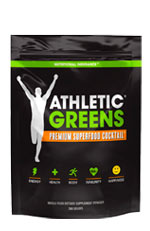Why Your Workout Routine Shouldn’t Be “Routine”
Last Saturday night, the power went out at our house thanks to a rare October snowstorm in New England. Expecting it to come back on pretty quickly, I went to bed Saturday night assuming I’d wake up to a normal Sunday morning.
Instead, I woke up and it was 49 degrees in my house. And, that wound up being par for the course through Tuesday at about 4pm. No hot showers, no refrigeration, no coffee in the morning: it makes you realize how much you take some things for granted.
It’s not all that different than what you’ll hear from injured and sick athletes. We always just believe that we’re going to be healthy – and it’s that assumption that leads us to put too much weight on the bar and lift with poor technique, have the extra beer, go to bed an hour later, or make any of a number of other small, but crucial decisions that interfere with our short- and long-term health, and the continuity in our workout “routines.”
I wish I’d foam rolled even when I wasn’t in pain.
I wish I’d done that dynamic flexibility warm-up even when I just wanted to get in and lift.
I wish I’d eaten my vegetables even though I was just trying to shovel in as much calories as I could in my quest to get strong and gain muscle.
These are all things I’ve heard from injured people. Hindsight is always 20/20.
Some of these decisions are made out of negligence, but often, they’re made simply because folks don’t know about the right choices. I mean, do you think this guy would really continue doing this if he thought it was good for his body?
Nobody is immune to ignorance; we’ve all “been there, done that.”
Almost a decade ago, I had no idea how much soft tissue work, high volumes of horizontal pulling, and thoracic spine mobility drills could do to help my shoulder. It’s why I stumbled through fails attempts at physical therapy with that shoulder back in 2000-2003, only to accidentally discover how to fix it with my own training in time to cancel my shoulder surgery.
Back in that same time period, nobody ever told me how eating more vegetables would help take down the acidity of my diet, or that Vitamin D status impacted tissue quality and a host of other biological functions. I never knew most fish oil products you could buy are woefully underdosed and of poor quality. Now, I crush Vitamin D, fish oil, and Athletic Greens on top of a healthy diet that’s as much about nutrient quality as it is about caloric content and timing.
In short, I didn’t know everything then, and while I know a lot more now, I still don’t claim to have all the answers. Nobody has all of them. So what do you do to avoid taking important things for granted?
Get around people who have “been there, done that.” Ask questions. Follow workout routines they’ve followed, and consult resources they’ve consulted. I touched on this in my webinars last week.
I also discussed this topic in a blog about strength and conditioning program design a while back. The best way to avoid making mistakes and taking things for granted is to be open-minded and learn from other people.
With that in mind, let’s use this post as a starting point. What mistakes have you made when it comes to taking things for granted? And, what lessons have you learned? Post your comments below.




